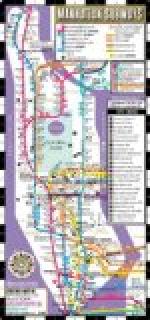[Illustration: DUCT LINE ACROSS 58TH STREET 32 DUCTS]
Construction of the revolving parts of the alternators is such as to secure very great strength and consequent ability to resist the tendency to burst and fly apart in case of temporary abnormal speed through accident of any kind. The hub of the revolving field is of cast steel, and the rim is carried not by the usual spokes but by two wedges of rolled steel. The construction of the revolving field is illustrated on pages 91 and 92. The angular velocity of the revolving field is remarkably uniform. This result is due primarily to the fact that the turning movement of the four-cylinder engine is far more uniform than is the case, for example, with an ordinary two-cylinder engine. The large fly-wheel capacity of the rotating element of the machine also contributes materially to secure uniformity of rotation.
[Illustration: MAIN CONTROLLING BOARD IN POWER STATION]
[Illustration: CONTROL AND INSTRUMENT BOARD—MAIN POWER STATION]
The alternators have forty field poles and operates at seventy-five revolutions per minute. The field magnets constitute the periphery of the revolving field, the poles and rim of the field being built up by steel plates which are dovetailed to the driving spider. The heavy steel end plates are bolted together, the laminations breaking joints in the middle of the pole. The field coils are secured by copper wedges, which are subjected to shearing strains only. In the body of the poles, at intervals of approximately three inches, ventilating spaces are provided, these spaces registering with corresponding air ducts in the external armature. The field winding consists of copper strap on edge, one layer deep, with fibrous material cemented in place between turns, the edges of the strap being exposed.
[Illustration: DUCTS UNDER PASSENGER STATION PLATFORM 64 DUCTS]
The armature is stationary and exterior to the field. It consists of a laminated ring with slots on its inner surface and supported by a massive external cast-iron frame. The armature, as has been noted, comprises seven segments, the topmost segment being in the form of a small keystone. This may be removed readily, affording access to any field coil, which in this way may be easily removed and replaced. The armature winding consists of U-shaped copper bars in partially closed slots. There are four bars per slot and three slots per phase per pole. The bars in any slot may be removed from the armature without removing the frame. The alternators, of course, are separately excited, the potential of the exciting current used being 250 volts.




